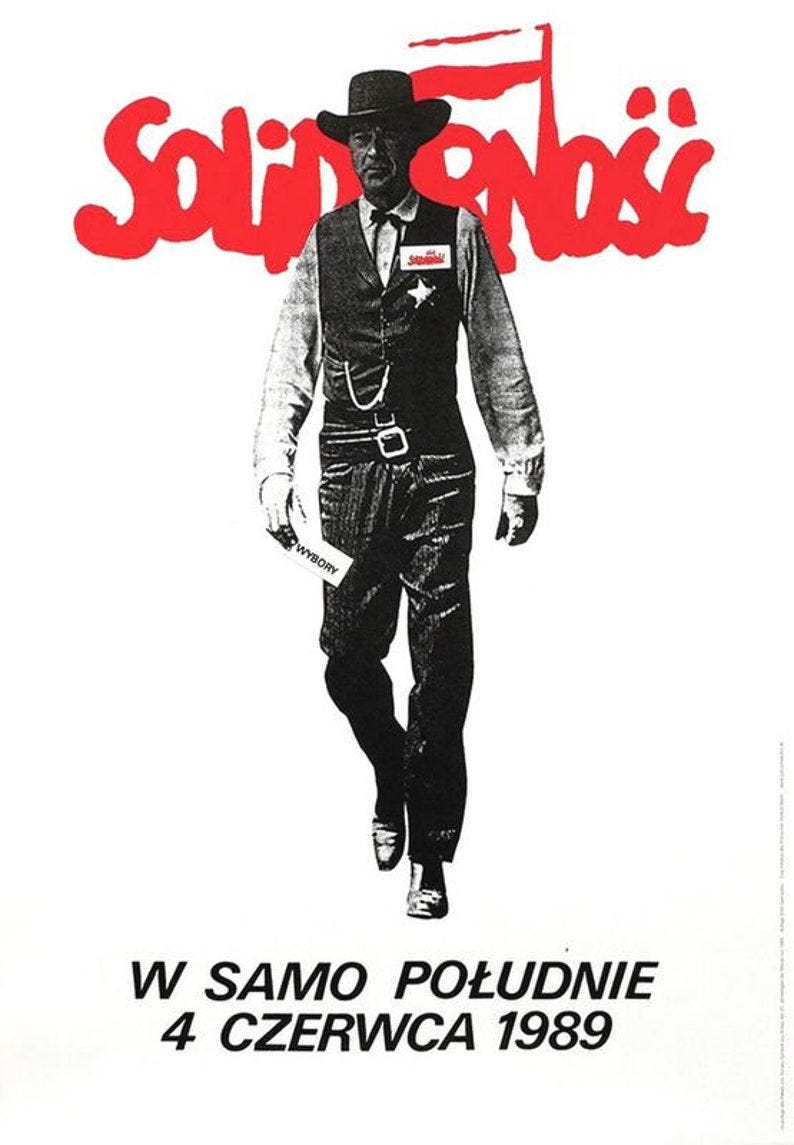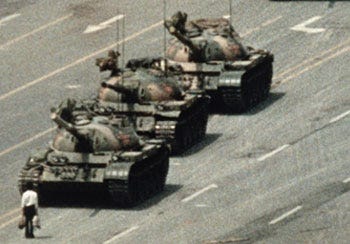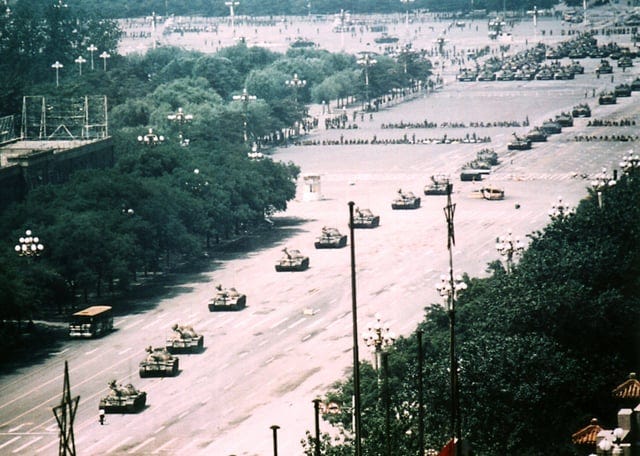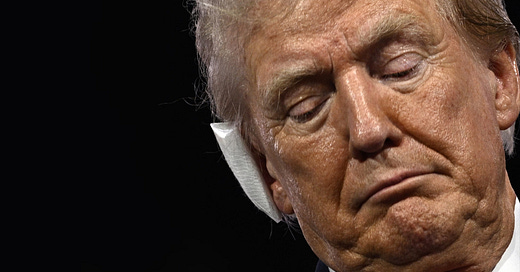

Discover more from Open Letters, from Anne Applebaum
Thirty-five years ago today, on June 4, 1989, Poland held partially free elections: some seats were contested, and some not. I was in Warsaw on that day, and remember (as most now don’t) that the result surprised everyone. The communist party had nominated various popular celebrities to stand, as well as some people known to be ‘reformers’; more to the point, they still controlled all of the money and all of the institutions, so many assumed they would do well. There hadn’t been a free election since before the Second World War, and there was no polling to speak of.
The opposition “citizens’ committees”, united behind the Solidarity logo, surprised everyone, winning nearly every seat they were allowed to contest. They had better slogans, better arguments, and much better posters. This one - it reads “High Noon, June 4, 1989” - was the most famous:
At the end of August, after a few tumultuous weeks, the result was the first non-communist government in Poland since 1939.
Events unfolded rapidly after that. East Germans, who had been forbidden to travel outside the communist block, began arriving in Poland, seeking a route West; one or two of them stayed in my Warsaw apartment. They also started arriving in Budapest and in early September, the Hungarians opened their borders and let hundreds into Austria. Street revolutions followed, in Prague and then in Berlin itself. The Berlin wall was breached in November. By the end of the year, the Soviet empire in eastern Europe had come to an end.
But the Polish election was not the only important event to take place on June 4, 1989. On that day, the Chinese communist party fired on Chinese students, ending a massive, weeks-long student demonstration in Tianamen Square, in central Beijing. Liberalization of the economy, launched a decade earlier, had created inflation, corruption and a desire for freedom. The students were calling for free speech, due process, accountability, and the rule of law. The protests had begun in April; they had grown in numbers following the visit of Mikhail Gorbachev, the Soviet leader who had liberalized his own country.
But instead of a peaceful transition to democracy, soldiers arrested and killed thousands of demonstrators in Beijing and around the country. Later, they systematically tracked down the leaders of the protest movement and forced them to confess and recant. Some spent years in jail. Others managed to elude their pursuers and flee the country forever. By June 5, the protests were over, with one exception: On that day, an unknown protester stood in front of a column of tanks. His fate is unknown.
In the years that followed, the Chinese would conclude that the language used by the students posed a dire threat to their own power. To prevent the democratic wave then sweeping across Central Europe from reaching them, the Chinese Communist Party would, in due course, seek to to eliminate not just the people but the ideas that had motivated the protests. In the years to come, this would require policing what the Chinese people could see online, and creating the most intense surveillance state the world has ever seen.
Finally, on June 4, 1989, the Ayatollah Khomeini died. Or rather, he died just before midnight on June 3; news of his death reached the rest of the world the following day. Millions of people attended his funeral, some of whom were crushed to death by the crowds. (ITN has posted some amazing raw footage.) Anyone who hoped that his death would bring change was disappointed. Instead, like their Chinese counterparts, the new leaders of the Islamic Republic hung on to power. They still do.
Any one of these events might have ended differently. The Polish communist party might have tried to prevent change. The Chinese communist party might have negotiated with the students, accepted some demands. The Iranian regime might have reformed itself, following the death of its brutal leader.
In each case, there were surely people who wanted a different outcome. Had they succeeded, we would be living in a different world today. Nothing about history is inevitable.


















Thanks Anne, with the exception of Poland, June 4, 1989 has proved to be a disaster for many of the citizens of China and Iran. Political power with the zealotry of religious extremism as manifested in Iran has left us in a far more precarious state than if those two states had evolved the way the Poles did. Good people are not unique to any particular culture but their ability to flourish can be severely limited by the culture they find themselves in. All of the freedoms that we take for granted because of our constitution, are like a candle in the wind if not protected, and once extinguished by a flood of extremist ideology can prove very hard to relight. The Chinese surveillance state has set a new low for its desire to control each and every one of its citizens, and they are marketing that technology to would be autocrats around the world. The Iranians don't have much to export anymore except armed conflict which their religious zealotry encourages them to do, so they take their mineral wealth and convert it into weapons used to destabilize their neighbors, much like their friends the Russians are doing in Ukraine with their help. Fascism and autocracy seem to go hand in hand, speaking of hands, ours are going to be full combating them, I wouldn't feel so threatened if we were all on the same page, my father's generation soundly defeated Fascism in the 40's, and here it is again evolving in much the same way.
Having been born in 1952, I remember vividly the extraordinary Solidarity movement led by Lech Walesa. Only heaven knows what happened to the courageous young man (assuming a man) who defied the column of tanks in Tianamen Square. We watched in amazement and in horror.
In the United States today, it is no overstatement to say we face the same grave, oppressive authoritarian future if we fail to act equally courageously - with minimal personal danger to do so, I might add.
Every year at this time I'm reminded of the patriotic love for our country that was carried out, person by person, wave after wave, on the beaches of France and throughout Germany. Those men and women saved many countries - including ours - from Hitler's hand. Every citizen at home marshalled whatever resources were available to support that extraordinary generation of men and women.
The shallow behavior borne of ignorance, of such a large percentage of Americans who can think of nothing but self-pity and retribution toward their own government, is sickening. Whether they deserve to living a democratic republic is debatable.
We just need to go win this thing in November. All hands on deck.